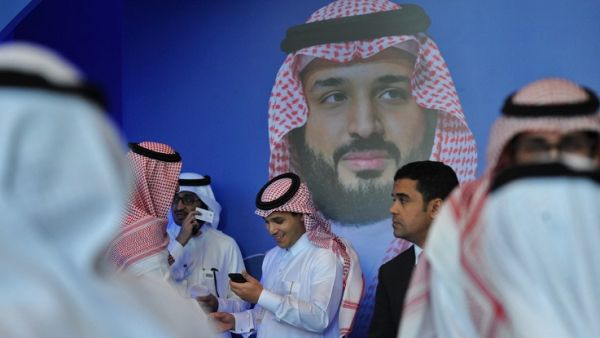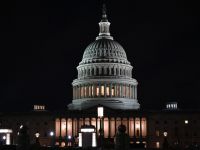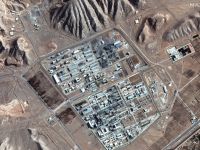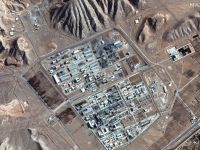From the year’s biggest IPOs to Saudi Arabia’s new dependent fee and the economic implications of the Qatar crisis, here’s a roundup of some of the most significant business stories of 2017.
1. More jobs, lower rents with Saudi Arabia’s dependent fee
The new dependent fee, which came into effect on July 1, has forced many foreign families to leave the Kingdom and this in turn has brought down housing rents by 10 to 20 percent, experts said. They explained positive and negative aspects of the dependent fee, saying that it would create more jobs for Saudis. The dependent fee is SR1,200 ($320) for every family member this year and SR2,400 ($640) starting next year. Read more about Saudi Arabia’s dependent fee and how it could help the Saudi economy in the years to come.
2. Saudi Arabia unveils $500 billion mega city on border with Jordan, Egypt
In yet another bold move by Saudi Crown Prince Mohammed Bin Salman in 2017, Saudi Arabia announced its plan to create a $500 billion mega city on the Red Sea coast. The 26,500 square kilometers zone, known as Neom, will offer its inhabitants “an idyllic lifestyle paired with excellent economic opportunities that surpass that of any other metropolis”. Neom is the world’s first zone to extend across three countries, stretching its borders into neighboring Jordan and Egypt. Read more about Neom, the latest project in an ambitious plan to prepare Saudi Arabia for the post-oil era.
3. Emirates ends 2017 with several milestones
Despite a tough year for all Middle Eastern carriers, Emirates said it has expanded its network in 2017 to 156 destinations and grew its fleet by 21 new aircraft. The carrier unveiled a game-changing First Class cabin in collaboration with Mercedes-Benz. Emirates entered into a partnership with flydubai, which includes a codeshare agreement to offer travelers access to over 200 destinations on the combined networks of both airlines. In March, Emirates had announced an 82 percent drop in its annual profit for 2016-2017. The Emirates Group’s annual profit for the same year dropped by 70 percent to Dh2.5 billion ($670 million).
4. Kuwait bans work visas for expats younger than 30 years old
Kuwait made the headlines in 2017 with a number of controversial decisions when it comes to the life of expats in Kuwait. Earlier this year, Kuwait said it would start to collect significantly higher medical fees for expats, Kuwait also said it would require a university degree for the renewal of expat residencies starting from this year. Most recently, Kuwait said it would stop issuing work visas for expats who are younger than 30 years old, one of the many steps undertaken by the Kuwaiti government to rebalance the ‘demographic imbalance’ in the country, in which expats make up an estimated 70 percent of its 4.3 million population.
Saudi Arabia Announces 5 Percent VAT on Fuel, From January 1
UAE Airlines Should Brace for Weaker Profits in 2017: IATA
5. Saudi Arabia receives first payments from arrested princes, businessmen
After launching a massive corruption probe, Saudi Arabia said that businessmen, officials and royals held were making payments to settle their cases.Bloomberg confirmed that some of the accused were transferring funds from their personal accounts to government-controlled ones. The publication reported that Saudi Arabia expected to recover $50 billion to $100 billion from the detained. Some high-profile targets of the crackdown include Prince Miteb who was among those who agreed to pay for their freedom, with a whopping $1 billion, and billionaire Prince Alwaleed bin Talal. The government has not commented on Prince Alwaleed’s current status.
6. Dubai property: 7 reasons why you should buy a home in Dubai
With residential prices in Dubai at an all-time low, there are a lot of great deals available for buyers in the market. Some of the reasons cited by experts on why now is a good time to buy property in Dubai include new REIT choices (Real Estate Investment Trusts), the availability of affordable housing options, attractive payment deals and higher rental returns in Dubai when compared with other places in the world. In this article, Hina Navin gives 7 reasons why it is a good time to buy property in Dubai.
Saudi Arabia: Special Unit to Handle Cash Settlements from Arrested Princes
Dubai to Accept Bitcoin Payments on This Real Estate Project
7. IPOs in MENA up 400 percent in 2017
In a study on regional IPO issues, Ernst & Young said that the Middle East and North Africa (MENA) region witnessed five initial public offerings (IPOs) deals in the third quarter of 2017, a 400 percent increase when compared to the single IPO recorded in the same period of 2016. MENA IPO activity was primarily driven by three IPOs on the Saudi Stock Exchange valued at a total of $206.8 million, and two IPOs on the Muscat Securities Market in Oman. Other significant IPOs this year include the ADNOC Distribution IPO, the Emaar Property IPO and the much-awaited Saudi Aramco IPO in 2018.
8. Oman, the only winner in Qatar crisis
Oman seems to have benefited from the Qatar crisis mainly by staying neutral. According to official figure, Oman has seen trade with Qatar skyrocket by 2,000 percent in the three months following the blockade. Qatari logistics companies are even beginning to switch their shipping hubs from Dubai - which is part of the Saudi-led bloc against Doha - to Sohar in the north of Oman. Dubbed "the Qatar effect", the blockade has been most beneficial for the Sultanate.
9. Reopening Syria, Iraq trade routes will add to Lebanon’s 2018 GDP growth
A London-based financial research center has projected positive economic growth for Lebanon over the next five years after the expected reopening of trade routes with Syria and Iraq in 2018.“We expect [Lebanon’s] real GDP growth to pick up from 2.2 percent in 2017 to 3.1 percent in 2018 driven by some recovery in investment and exports. The latter could be supported by reopening the blocked trade routes by mid-2018 with Syria and Iraq following the defeat of ISIS,” the report said.
10. Saudi Oger officially shuts down after 39 years in Saudi Arabia
Struggling construction company Saudi Oger - owned by the family of Lebanese Prime Minister Saad Hariri - ended operations after 39 years in the Saudi market, a local newspaper reported. The company, hit by the slowdown in the Kingdom’s construction sector and oil crisis was forced to lay off thousands of workers and sell off many of its assets. Saudi Oger’s debt to local banks was estimated at around SR13 billion ($3.4 billion). The company could seek a debt restructuring deal.

If you have any questions, please leave a comment below. Happy 2018!
By Reem Boudraa








